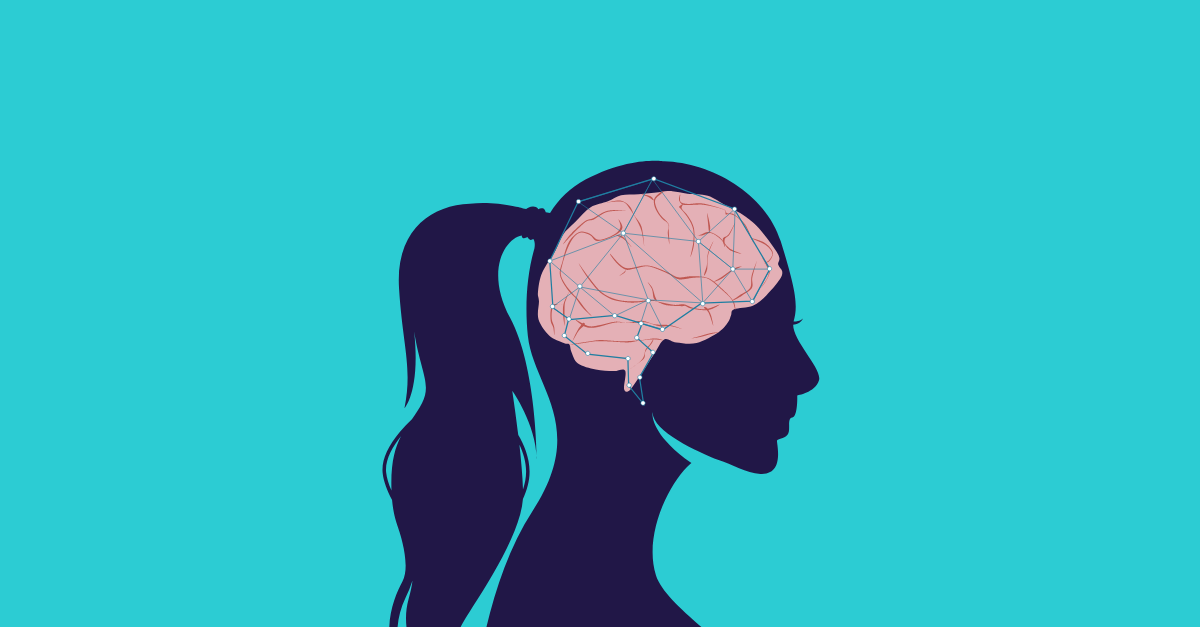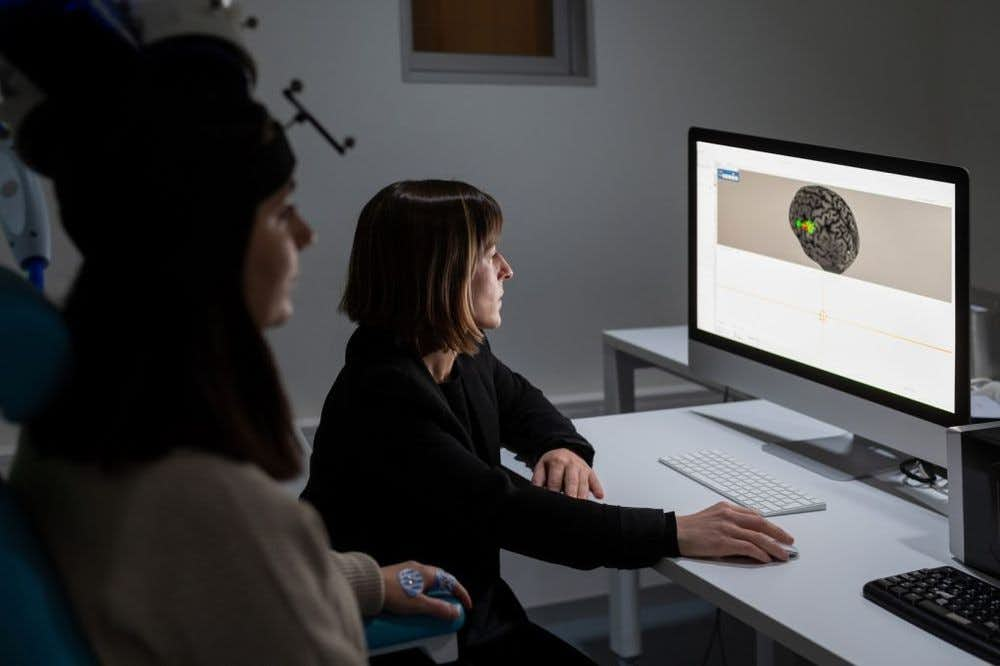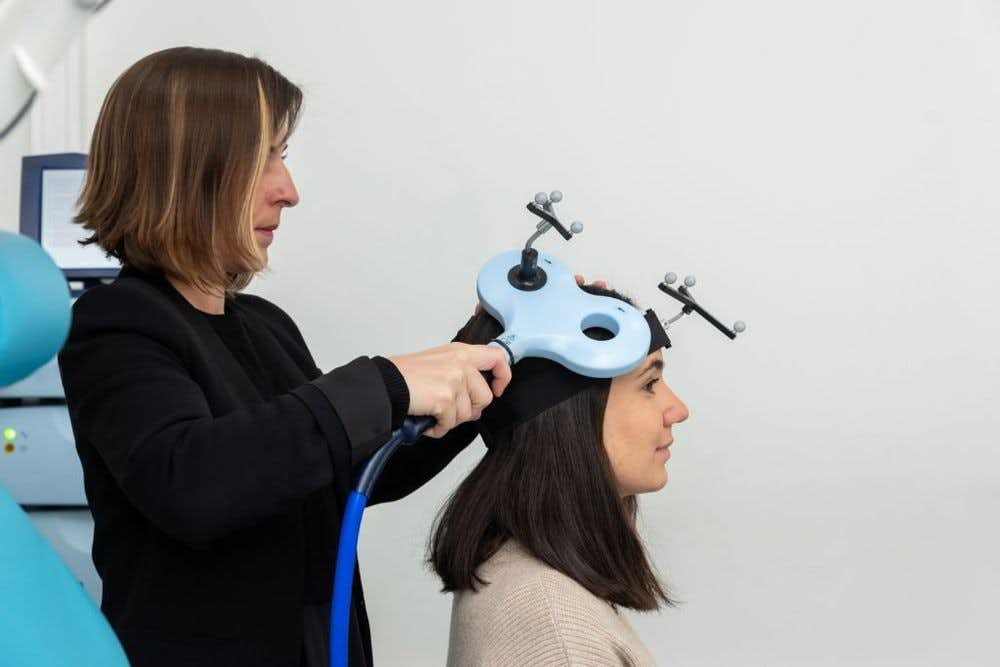May 2nd, 2024

Since being approved as a therapeutic modality of treatment-resistant depression by the US Food and Drug Administration in 2008, TMS therapy has become an increasingly utilized evidence-based treatment for those facing treatment-resistant depression and other psychiatric disorders. Clarity Clinic is thrilled to offer patients transcranial magnetic stimulation (TMS) treatments. Keep reading to learn all about TMS for depression.
Major Depression Disorder (MDD), or unipolar depression, is a mood disorder that causes persistent feelings of sadness, hopelessness, and loss of interest. MDD presents, as stated by the DSM-5, as experiencing five or more of the following symptoms over a minimum of 2 weeks, with at least one of the symptoms being depressed mood and/or loss of interest/pleasure.
The World Health Organization (WHO) estimated that major depression disorder was the 11th most common cause of disability and mortality worldwide among 291 diseases and causes of injuries. First-line treatment for major depression disorder consists of Serotonin Selective Reuptake Inhibitors (SSRIs) such as escitalopram, sertraline, and fluoxetine.
While patients may see a response to these medications (≥50% improvement), they may not meet the qualifications of remission – or resolution of symptomology. Finding oneself in a position of not finding relief of symptoms of depression with medication can be an isolating feeling. At Clarity Clinic, we are thrilled to be able to offer Transcranial Magnetic Stimulation (TMS) to qualifying patients.

Transcranial magnetic stimulation (TMS) therapy is a non-invasive therapy that uses magnetic fields to induce an electrical current at specific areas within the brain. This therapy is used throughout the world for a plethora of different psychiatric disorders and brain-related disorders.
TMS has been used in therapy for major depressive disorders, obsessive-compulsive disorder, generalized anxiety disorder, bipolar disorder, post-traumatic stress disorder, schizophrenia, and tinnitus.
A common analogy for TMS is going to the gym for your brain. When you go to the gym and work out similar muscles, you start to be able to lift more and use the muscles differently. As you continue TMS therapy for depression, you are training your brain and strengthening neural pathways that influence thoughts, emotions, and behaviors and, in effect, alleviate symptomology of depression (fatigue, sadness, hopelessness, etc.)

Treatment-resistant depression is typically defined as major depression, which does not find remission after 2+ anti depression medication trials and adequate psychotherapy (talk therapy, CBT, etc.). TMS is an evidence-based treatment for treatment-resistant depression. Multiple meta-analyses of randomized trials looking at treatment of treatment-resistant depression with TMS vs. placebo have demonstrated that TMS is a superior option.
A meta-analysis done by Brunoni et. al. demonstrated patients were three times more likely than placebo to find a response to TMS therapy (odds ratio 3.3, 95% CI 2.3-4.6).1
Patients who have tried multiple pharmacological and psychotherapeutic treatment options for major depression and are not seeing full remission of their depressive symptoms are prime candidates for TMS.
TMS therapy for major depression treatment involves the placement of a device on the patient’s head that will transmit the electrical currents in pulses through a metal coil into specific areas of the brain. TMS treatment involves daily treatments for 6-9 weeks.
TMS is typically not the first line of defense for treating depression, given that it can be challenging to come in for therapy multiple times for several weeks at a time. However, TMS therapy can provide lasting effects.
Depression can feel very discouraging, and it can feel hopeless when one has tried different treatments over and over and they have only slightly mitigated symptoms. The following are a few of the benefits of TMS in treating depression:
Many people who suffer from depression may also be impacted by challenges getting quality sleep night after night. For individuals undergoing TMS therapy, it has been shown to be effective in helping to improve the overall quality of sleep.
Those experiencing sleep disturbances such as Insomnia may have difficulty falling asleep, staying asleep, or feeling well-rested. Not getting a good night's sleep can impact one's ability to function during the day and with the improvement of depression symptoms, sleep patterns can also be improved.
When many think of depression, they think of the traditional treatment options such as medication, psychotherapy (talk therapy), and making lifestyle changes (making adjustments to diet and exercise). While these treatment options can be effective for many, others may have tried a combination of these and may still find themselves struggling.
One of the many benefits of TMS for depression is that at no point during TMS or after TMS is medication required. While some providers may recommend an antidepressant to be taken by a pt, TMS alone can be effective for many patients. This can be encouraging or patients who are hesitant to take medication or have not had success with medications in the past.
At Clarity Clinic, we are dedicated to providing top-tier mental health care across Chicago. As the leading clinic for TMS therapy near you, we offer innovative treatments that are designed to effectively manage and treat various mental health conditions. Alongside TMS therapy, we provide comprehensive PHP and IOP programs, as well as a full range of other therapy and psychiatric services to meet your specific needs.
Don’t let mental health challenges control your life. Visit us at one of our conveniently located clinics in the Loop, River North, Lakeview Belmont, Lakeview Broadway, Evanston, Arlington Heights, and Mokena, to discover how our specialized services can support your journey toward better mental health. Our expert team is committed to offering compassionate care and tailored treatment plans.
Take the first step today. Contact Clarity Clinic to schedule your consultation and learn more about how our therapies can help you or your loved ones find the path to recovery and wellness.
Related Readings:
Does TMS really work for depression?
Yes, many patients experience lasting relief. Book a consultation to speak with one of our providers today.
Do you accept insurance for TMS therapy?
Yes! At Clarity Clinic we accept Aetna, Blue Cross Blue Shield, Cigna, and UnitedHealthCare insurance plans. Feel free to call our offices for any questions.
How does TMS therapy compare to other depression treatments like medication or psychotherapy?
TMS therapy offers a non-invasive alternative to traditional depression treatments like medication and psychotherapy. It often benefits those who don't respond to medications, with fewer side effects. Unlike medication, TMS does not involve systemic effects, and unlike psychotherapy, it directly stimulates brain regions involved in mood regulation.
How do I schedule an appointment for TMS therapy at Clarity Clinic ?
Schedule a free TMS consultation at one of our clinic or give us a call to speak to a live representative who can help answer any questions and get you booked for treatment.
References:
Holtzheimer PE. Unipolar depression in adults: Indications, efficacy, and safety of transcranial magnetic stimulation (TMS). In: Roy-Byrne PP, ed. UpToDate.
Diagnostic and Statistical Manual of Mental Disorders: DSM-5. 5th ed., American Psychiatric Association, 2013.
Lyness, J. Unipolar depression in adults: Assessment and diagnosis. UpToDate.
Our Services
Virtual/Online CarePHP and IOPAdult PsychiatryChild & Adolescent PsychiatryAdult TherapyChild & Adolescent TherapyCouples CounselingFamily TherapyGroup TherapyPsychological TestingTranscranial Magnetic Stimulation (TMS)